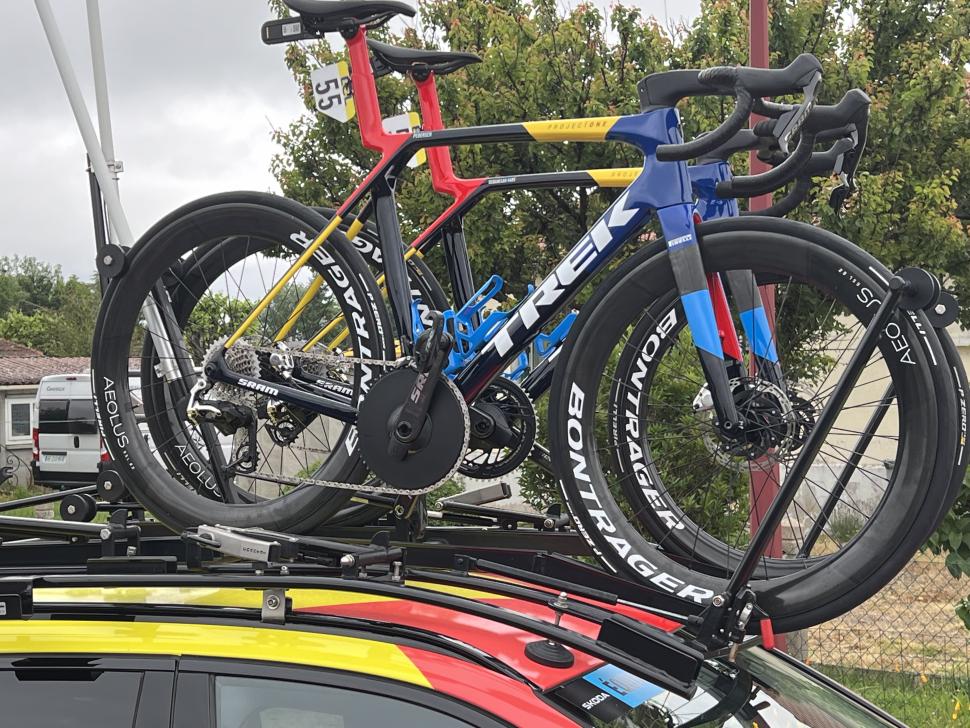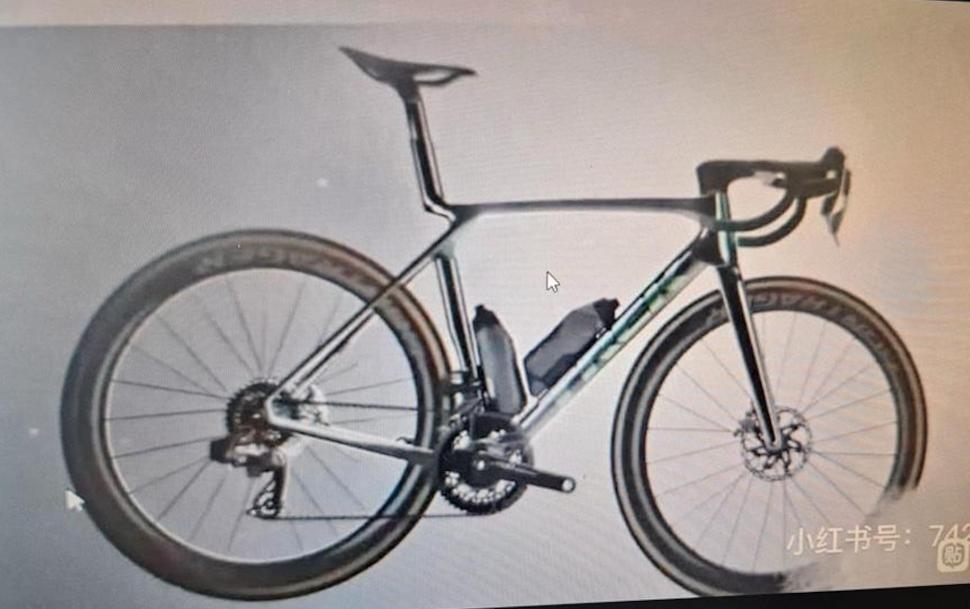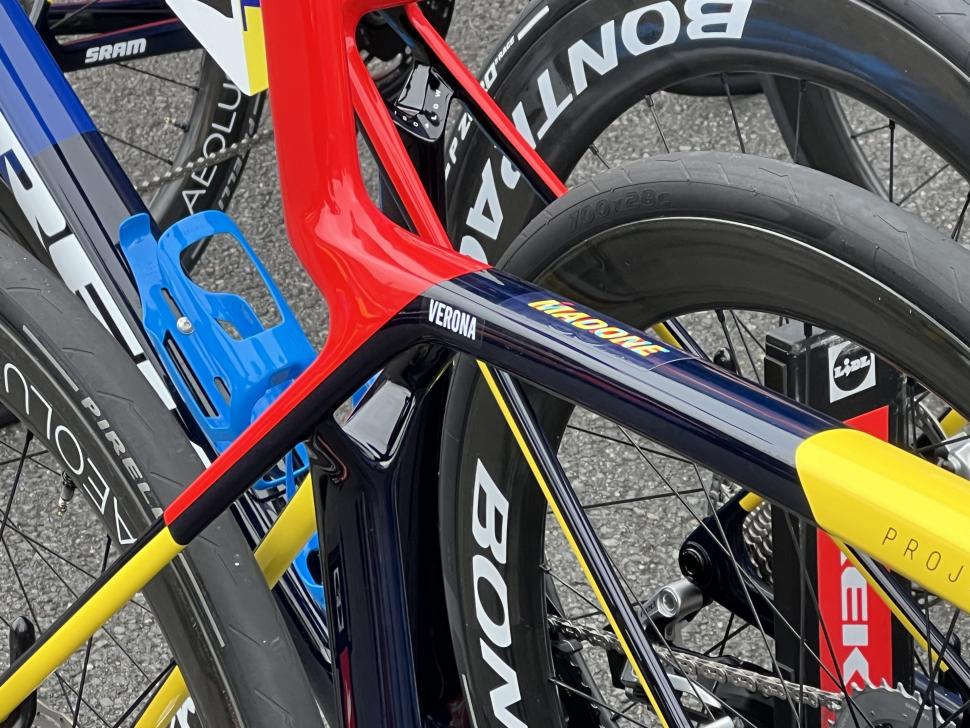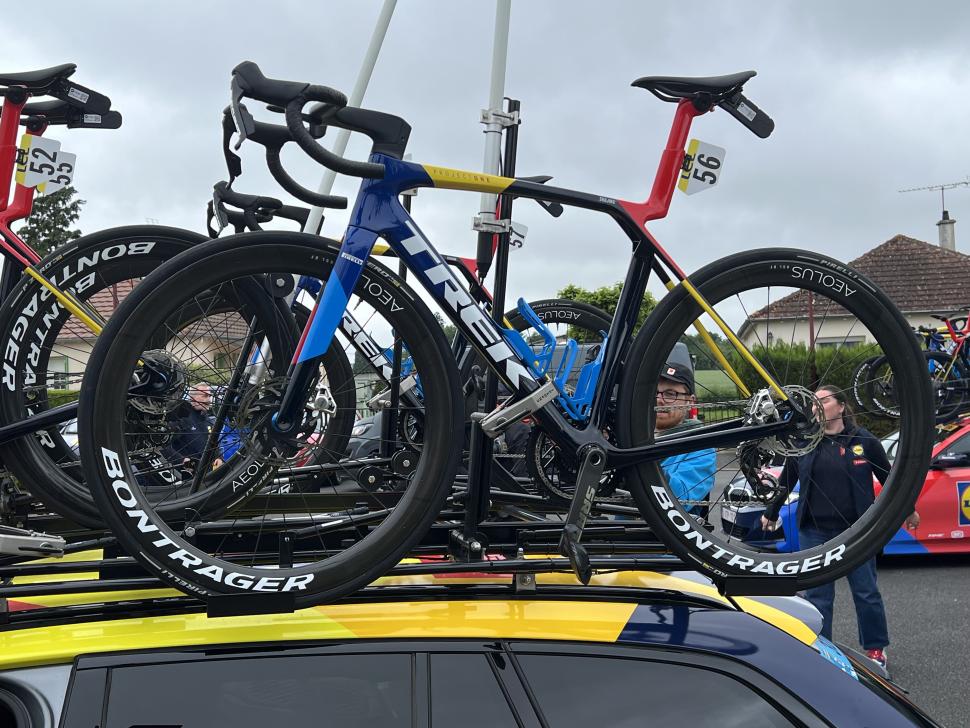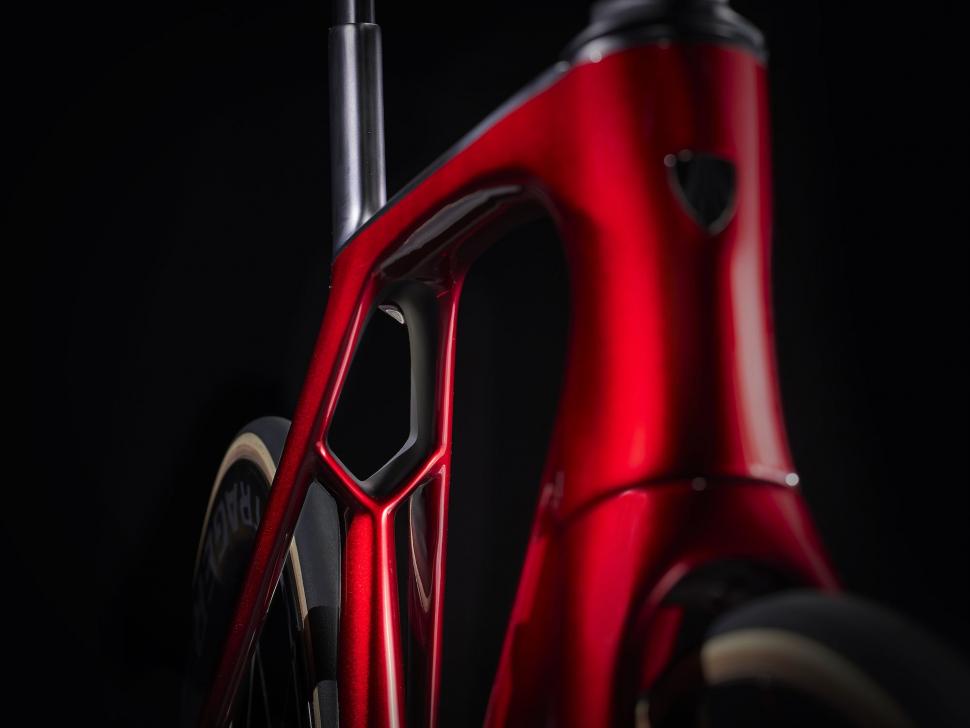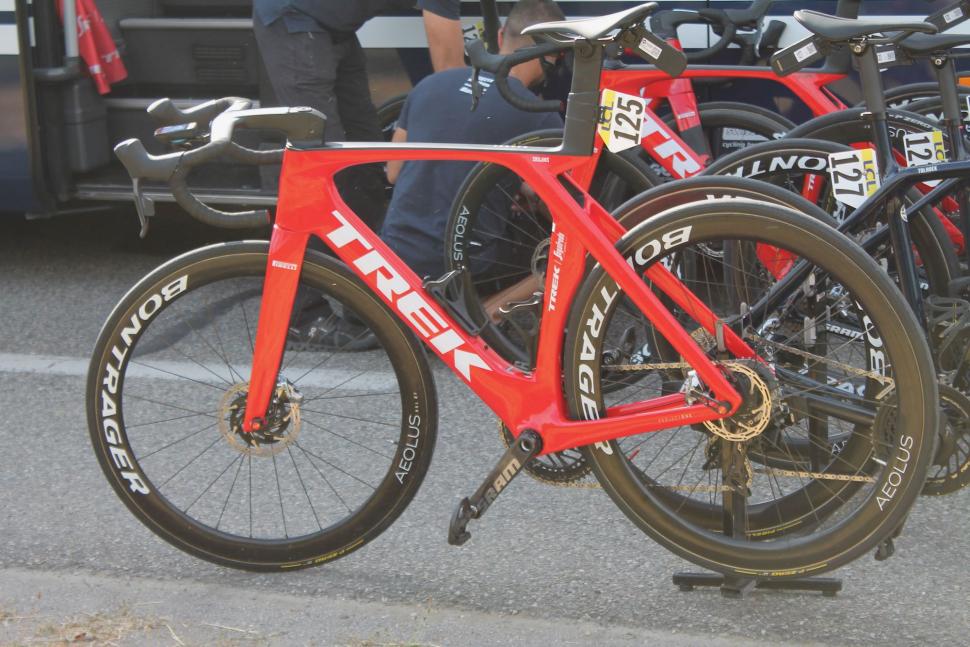Lidl-Trek riders at the Critérium du Dauphiné are racing a new Trek Madone that retains the IsoFlow technology and the cantilever seatpost design of the existing model, but comes with shallower tubes, presumably to reduce weight.
We first reported on this new bike at the start of the year, when pro rider Giulio Ciccone was spotted riding it at a training camp. At the time, we thought it was a revamped version of Trek’s lightweight Émonda, which is overdue an update.
Then, a new picture emerged a few days ago, leaked on the Weight Weenies forum.
Now Lidl-Trek riders are racing the new bike, which says Madone on the top tube, at the Dauphiné, which starts today in Saint-Pourçain-sur-Sioule, France – making it the eighth generation.
We first spotted the seventh-generation Madone SLR here at the Dauphiné two years ago, although it wasn’t officially launched to the public until a month later.
> Trek releases radical Madone SLR, its “fastest road race bike ever”
The standout feature of that bike was its IsoFlow technology, which involves an interrupted seat tube. It’s one of those things that’s way easier to communicate via a picture than through words so…
Trek claims that IsoFlow provides dramatic aerodynamic improvements – it “smooths air as it moves over the bike and accelerates it through the frame for even more free speed”, according to the US brand – while reducing weight and adding compliance. The cantilever upper seat tube/seatpost design is intended to flex over bumps to smooth the ride.
Like most of the cycling world, we thought Trek would likely extend IsoFlow to its lightweight Émonda platform next. Why? Mainly because the Émonda hasn’t been updated in over three years whereas the Madone got its radical new shaping in 2022. However, it looks like we missed the mark there and Lidl-Trek’s bike is, in fact, the eighth-generation Madone.
Although similar to the seventh-generation model (above) in some ways, particularly regarding the IsoFlow technology at the heart of things, the new bike features shallower tubes across the board. The head tube and down tube are far, far shallower than those of the seventh-gen Madone, and the same goes for the fork legs.
The lower section of the seat tube wrapped around the leading edge of the front wheel on the previous Madone. That’s no longer a feature here, and the deep seatstays have been replaced by decidedly skinny ones.
What is Trek up to with this design? That’s harder to say because this new bike has yet to be launched and the company has released precisely zero information about it.
Over recent years, Trek has offered the Madone as its aero road bike and the Émonda as the lightweight alternative. However, several brands have moved away from that two-pronged attack (and some, like Pinarello, never went there in the first place).
Specialized, for example, has been down the ‘one bike to rule them all’ route with its Tarmac SL7 and SL8 – bikes designed to be both lightweight and aero. It claimed a 56cm frame weight of just 685g in its lightest colourway, and a fork weight of 358g
The seventh-generation Trek Madone SLR was launched with a frame weight of just under 1,000g, and a fork weight of just over 400g.
Trek clearly thought a little extra weight was a price worth paying for the aero gains, but we’d imagine that the tubes of the new Madone have been slimmed down to save grams. That’s speculation, of course, but it’s usually the way of things.
Will Trek have sacrificed aero performance to save weight? Who knows what it will claim when this bike is released? Trek will doubtless have a good story to tell and a white paper’s worth of justifications for the changes.
One final question: where does this leave the Émonda? One final answer: we don’t know. It could be that Trek is putting all its eggs into one basket with the Madone in the same way that Specialized has with its Tarmac, having shelved the aero Venge. Maybe Trek is merging its lightweight tech and its aero tech into a single platform. We suspect that the Émonda is too strong a model to let drift; it’s just really odd that the Madone has now been updated twice since the last Émonda launch.
Hopefully, everything will be revealed when Trek officially launches the eighth-generation Madone, although we don’t know when that’ll be. It’s a good bet, though, that any new bike from a major brand that we see raced at this time of year will get a full release ahead of the Tour de France – and that’s at the end of this month.

